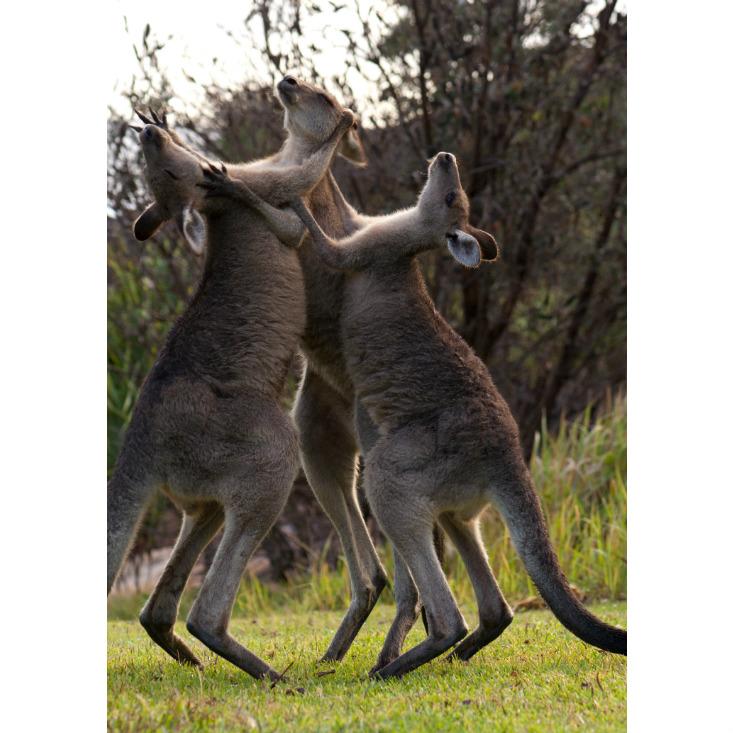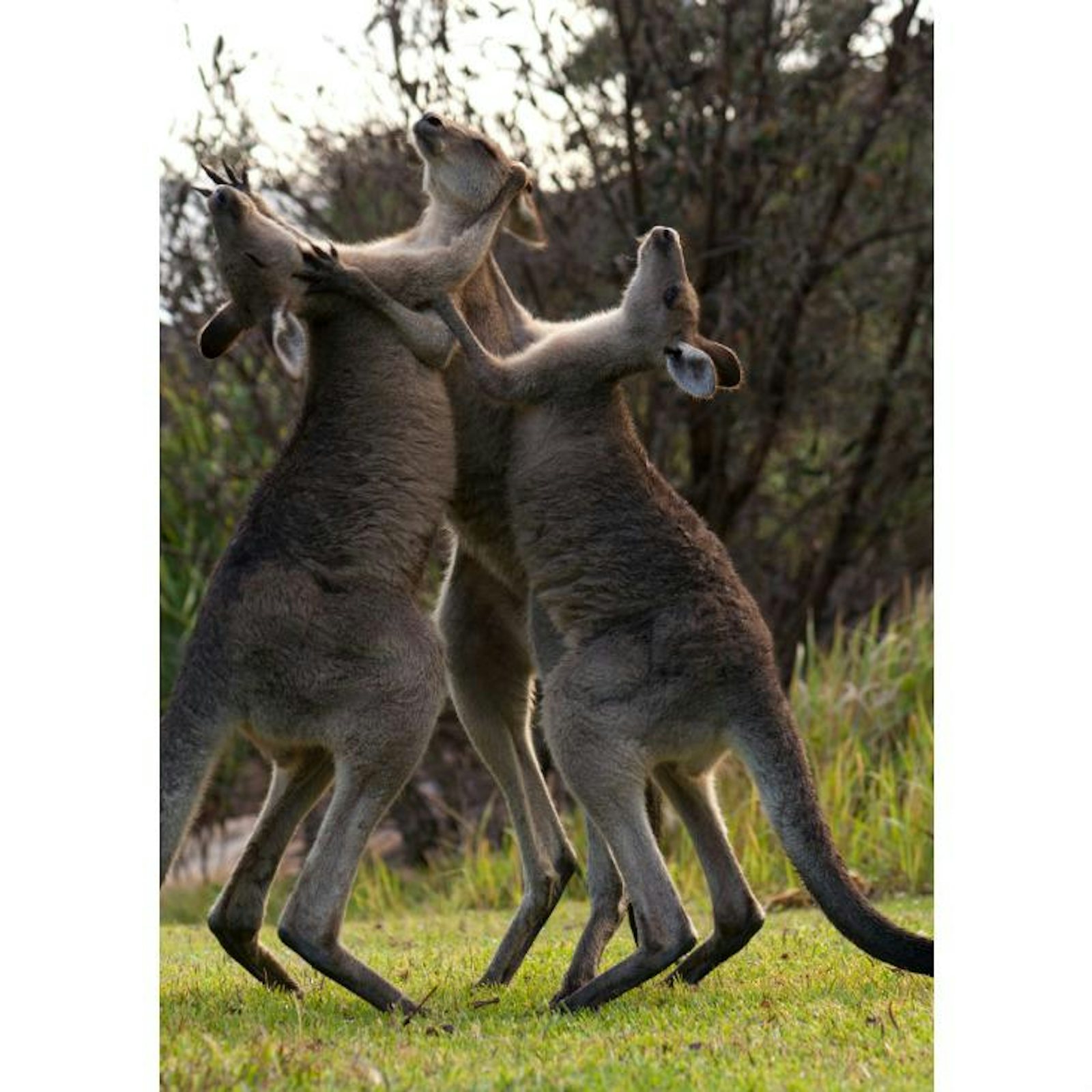Perched on the edge of a snowy slope, the youngster drops a small, makeshift sled at his feet. He steps onto it and glides down the incline, struggling to keep his balance. When the sled slows to a stop, he picks it up and trudges back up to the top for another go. Again and again he swoops down the slope.
This could be a scene from any child’s snow day, but it’s also a description of a sledding crow who happened to get captured on camera. (Watch the video below.) Even if you remind yourself that we humans are prone to misleading ourselves by anthropomorphizing other animals, it’s hard not to see the crow as playful. Without additional context, it’s hard to know what the crow’s really up to, but the crow does do a couple things that scientists would identify as play: His actions appear voluntary, yet pointless—there is no obvious function or benefit to what he’s doing—and he repeats the action several times.
As anyone who has accidentally spent hours playing Candy Crush knows, play is fun, but also costly. It takes up time that could be spent doing something productive, or, even worse, it can even be dangerous: Hundreds of people are seriously injured in snowboarding or skiing accidents every year. Yet play is surprisingly common in the animal kingdom. Kangaroos box for fun, octopuses play with toys, foxes jump on trampolines, fish jump and chase. Even wasps have shown evidence of play fighting.
Given the costs, scientists reason that there must be some evolutionary benefit or purpose associated with play. One theory is that play prepares animals for adulthood. In humans, pretend play is a vital stage in development—it helps develop imagination and gives children practice with taking other people’s perspectives. Likewise, it seems like play fights could prepare animals for conflict in adulthood, and that running and jumping could develop strength, endurance, and coordination for hunting or fleeing predators.
But scientists have struggled to find any direct links between play and later preparedness. Zoologist Lynda Sharpe ventured into the Kalahari Desert to study young meerkats’ play behavior. She theorized that if play helped hone adult skills, meerkats who play fought more would win more often in fights as adults, but she found that this was not the case. Another study with kittens found the same thing: play did not correlate with success in adult skills, like catching mice. What scientists have found is that play is sometimes related to general positive outcomes in adulthood; for instance, playful rats are less likely to develop Alzheimer’s, and bears who play as infants who play as infants are more likely to live past their first year. But just how play could improve health is still mysterious. It might even be that engaging in play is a sign of a health rather than a cause of it.
If play doesn’t improve skills later on, perhaps it serves another purpose. Another theory scientists have considered is that play helps build social bonds or decrease aggression in the group. But though this explanation makes some intuitive sense, there’s little research to back it up. Sharpe’s meerkat studies concluded that meerkats that played were no less aggressive, and that meerkats that played with one another were no more likely to groom one another, a sign of social bonding. A study with wallabies also found no relationship between play and social bonds. Plus, not all play is social—many animals, like the sledding crow, play alone.
Then there’s the possibility that play can moderate stress. Humans feel the need to blow off steam after a long week, and it seems that the proverb “all work and no play makes Jack a dull boy” may apply to animals, too—play-deprived rats become aggressive, for example. Wrestling and play fights activate the same neural pathways used in real fights, so play could train animals to deal with stressful situations. Conversely, when animals experience too much stress, play is often one of the first luxuries to go. An animal that is exhausted or starving must focus all resources on survival.

To some extent, human play comes at the expense of animals’ play. As humans urbanize animals’ natural environments, we take the land for our own purposes; what used to be animals’ playgrounds are now our playgrounds, streets, and buildings. Playing squirrels are killed by cars when they chase each other onto roads, and kangaroos have taken to holding their boxing matches on suburban thoroughfares. Many animals in disrupted habitats become more stressed as they clamor to find homes and food, which leaves less time and energy for play.
On the other hand, by posing new challenges for animals, urbanization also increases cognitive flexibility and brain size of urban animals. (See Jude Isabella’s Nautilus story about how this effect has made raccoons ever more clever.) The demands of an urban life require ingenuity, and animals that seek out new niches in the environment are more likely to survive. If creativity is a signal of fitness, then our sledding crow friend will do just fine for himself in the city.
Jane C. Hu is a freelance science writer based in Seattle. You can find her on Twitter @jane_c_hu.






























